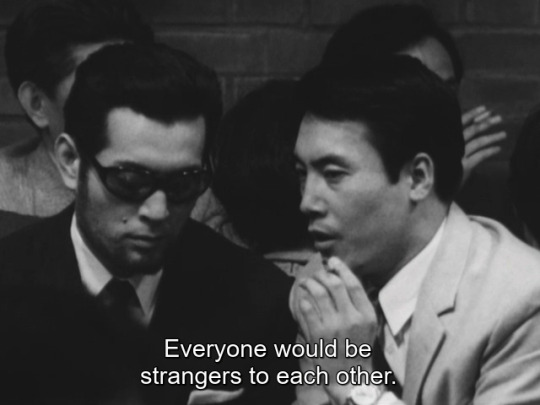Text

Omkara refers to the spoken utterance or written symbol for Om. Om symbolizes Brahman, ultimate formless reality in Advaita Vedanta. The word Brahman comes from a Sanskrit root meaning “expand,” so Brahman could be translated as “the vastness.”
The world that you experience is a personal version of it, a dream-like virtual simulation of actual reality. I can't see through your eyes or vice-versa. When I go to sleep, your world doesn't go dark, and if you're color blind, I can still see colors. The colors we perceive don't even exist outside of awareness.
We usually identify with this body and mind, but we are more than that. We are the knowing awareness in which this body and mind, and the rest of the world, are perceived. The body and mind are included in this awareness. It seems like you exist in the world, but the world exists inside you, i.e. awareness. Awareness is the field in which you experience everything: the five senses, thoughts, and emotions. Every experience you've ever had or will have occurs in the field of awareness.
Awareness is the screen on which the movie of your life experience plays. Instead of being exclusively stuck in the content of the movie, notice the screen on which it's playing. The movie changes, but the screen never does. The movies has drama, but the screen is forever serene, utter stillness and silence. The screen is impartial, allowing all movie scenes to play out without interference. The capacity of the screen is vast, containing entire projected worlds within it. The screen is luminous, the display in which all experiences are known.
Stop being so entranced by the movie that you ignore the screen. Focusing on the screen is suffering, but focusing on the screen is freedom. Awareness doesn't reject or devalue the movie, it just knows it for what it is. On some level your life will always have rich experiences, a story, and drama. But on another level, you are just the quiet, knowing presence that lovingly and patiently lets experience unfold.
30 notes
·
View notes
Text
"In the harmony of opposites, life finds its rhythm." - Zhuangzi
71 notes
·
View notes
Text

"The purpose of life is maybe just to be. In order to be, you have to live life, which is not boring at all. In fact, there are a lot of exchanges taking place, and there is more of a sense of celebration than before. The qualities of celebration and groundlessness make for a delightful world. So you live that life. I think the conventional idea is that we lead our life because we have to struggle and we have to achieve something, which keeps us occupied.
But maybe that's just one way, and there's an entirely different approach altogether."
Chögyam Trungpa Rinpoche
77 notes
·
View notes
Text
Emptiness is your ultimate protection against all enemies, both internal and external, and against the suffering that they inflict.
No matter how many enemies that you experience, no matter who or what they are, whether they are other beings, or an environment, or an afflictive emotion, or an illness, or whatever, not one of them truly exists without being dependent upon your mind's internal enemy.
For as long as your mind ignorantly grasps at an inherently existent 'self', there will always be an inherently existent 'other', and therefore you will always ignorantly perceive truly existent enemies, and you will suffer accordingly.
The moment that your mind is rid of this ignorance, by instead perceiving the reality of the emptiness of self, in other words, the lack of an inherently existent self, all internal and external enemies will disappear, and no matter what you encounter, you will always experience the pure bliss of reality.
~ Chamtrul Rinpoche
27 notes
·
View notes
Text
“حرقت قلبي”
—
-Arab saying
You burned my heart.
The feeling you get when someone who you love is in pain and you can’t help or cant do enough. The feeling is like someone is literally holding your heart to a set of flames.
(via seulray)
24K notes
·
View notes
Text
All Sentient Beings

Visions are my teacher.
My practice is thought-less, my meditation is all sentient beings.
What I am carrying is my thoughts.
I am a servant of the family of samsara.“
~ Tapihritsa
26 notes
·
View notes
Text

In Advaita Vedanta, the concept of mistakes or errors is understood within the framework of "Maya," or illusion. While our perception of reality might lead us to believe in mistakes, Advaita Vedanta suggests that these are ultimately manifestations of a limited understanding of the one, unchanging reality called Brahman. The perception of error is seen as a product of ignorance, or ajñāna, which veils the true nature of reality.
Advaita Vedanta posits that the world we perceive, including our experiences of success and failure, is a temporary, illusory manifestation of Brahman. This "Maya" is not a creation in the conventional sense but rather a veil of ignorance that prevents us from directly perceiving the true, non-dual nature of reality.
art: Samuel Farrand
29 notes
·
View notes
Text

Dr. Joe Dispenza's statement, "Anything that's not love in us must die," is a powerful message emphasizing the need for transformation and self-awareness to cultivate love and connection. This idea suggests that clinging to limiting beliefs, negative emotions, and behaviors that prevent us from loving ourselves and others must be released to embrace a more loving and fulfilling life.
46 notes
·
View notes
Text

“There are people who have the sun inside them. It’s hard to explain. His presence simply illuminates your world. It’s not about pretty smiles. They have an inner being that shines a lot and feels like the sun in winter. It is a quiet energy, an inner peace. But the most important thing is that they don’t want anything in return... like the sun.”
– Serdar Özkan
art: Caro Clarke
146 notes
·
View notes














